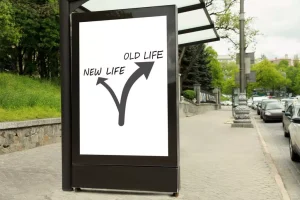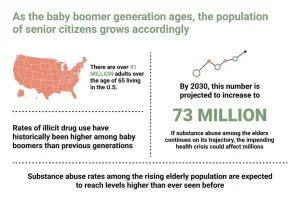
By acknowledging the progress made in recovery and expressing gratitude for the support received, individuals in AA and NA find strength and motivation to continue their journey toward sobriety. Gratitude is seen as a powerful tool for transforming perspectives and fostering a sense of humility and appreciation for the present moment. In the journey of recovery, cultivating gratitude plays a significant role in promoting healing and overall well-being.
Fostering Positive Relationships and Support Systems

By practicing gratitude in recovery, individuals can cultivate a sense of hope, resilience, and optimism. It helps them find meaning and purpose in their journey, empowering them to move forward and embrace the possibilities of a sober and fulfilling life. Gratitude provides a sense of grounding and stability during times of uncertainty, reminding individuals of the progress they have made and the positive aspects of their recovery.
Daily Gratitude Practices
A positive mindset can serve as a powerful motivator, encouraging one to continue on their journey of recovery, even during difficult times. Instead of focusing solely on the struggles and challenges, they start to appreciate the strength they’ve gained, the progress they’ve made, and the support they’ve received. This shift in perspective, fueled by gratitude, can enhance one’s resilience and motivation, contributing to a smoother and more effective recovery process. Finally, the practice of gratitude can also lead to improved physical health. Those who regularly express gratitude often report better physical health, possibly due to lower stress levels and a more positive outlook on life.
Keeping a Gratitude Journal
When we make a habit of appreciating these things, we begin to focus on the good rather than the bad. Gratitude works by shifting our thoughts away from what we lack towards what we have, creating feelings of positivity and happiness. People who practice gratitude tend to be more optimistic, empathetic, and resilient. It helps us see life through a different lens, and it doesn’t take much effort to cultivate this mindset. It can help improve your physical and mental health by fostering positive thinking.
- As individuals become more grateful for what they have, they tend to appreciate others’ efforts and become less critical of them.
- Incorporating gratitude into daily life can be a powerful tool for personal growth and positive transformation.
- Finding things to be grateful for in recovery helps an individual keep their mind in a positive place.
- By practicing gratitude, individuals in recovery can recognize the progress they have made and the obstacles they have overcome, leading to increased self-esteem and self-worth.
- Thank yourself for showing up each day to try again, to grow, to face challenges, and to work on being the best version of yourself.
This shift in perspective can be instrumental in overcoming challenges and maintaining a strong foundation for long-term recovery. Within Twelve-Step Programs, such as Alcoholics Anonymous (AA) and Narcotics Anonymous (NA), gratitude plays a significant role in the recovery journey. It serves as a guiding principle for spiritual growth and sobriety maintenance, fostering a sense of appreciation and positivity. Expressing gratitude is https://ecosoberhouse.com/article/how-alcohol-can-affect-relationships/ encouraged in various ways, including sharing during group meetings, acknowledging milestones, and recognizing the support received from others in the program. By incorporating these practical applications of gratitude into your daily routine, you can foster a greater sense of well-being and promote a positive mindset on your recovery journey. Incorporating gratitude into daily life can significantly enhance the recovery process.


It helps individuals find value in relationships, share positive sentiments, and seek out supportive communities during their recovery journey. Feeling grateful can promote a sense of belonging, increased happiness, and decreased loneliness. Expressing gratitude and strengthening social bonds may reduce feelings of loneliness and disconnectedness. Moreover, gratitude enhances physical health by making individuals feel lighter, more relaxed, and hopeful, leading to overall well-being and a healthier lifestyle [2]. By cultivating gratitude, individuals can strengthen their bonds and foster a sense of belonging and support.
- Then each day (once you get some stockpiled) take one out and remember what you have to be happy about.
- When individuals maintain a grateful outlook, they develop a positive mindset that can positively impact their physical healing.
- By recognizing and appreciating the progress made in recovery, individuals can cultivate a sense of accomplishment and resilience, empowering them to navigate challenges with confidence.
Gratitude strengthens interpersonal bonds, encourages forgiveness, and promotes healing in relationships. By recognizing and appreciating the progress made in recovery, individuals can cultivate a sense of accomplishment and resilience, empowering them to navigate challenges with confidence. Remember, gratitude is a powerful tool that can help individuals in recovery develop why is gratitude important in recovery personal resources and navigate the challenges they may face. Gratitude plays a significant role in the journey of recovery, offering a powerful tool to unlock healing potential and promote mental, physical, and social well-being. It can be described as the practice of acknowledging and appreciating the positive aspects of one’s life, regardless of the circumstances.
- Gratitude strengthens interpersonal bonds, encourages forgiveness, and promotes healing in relationships.
- In such challenging times, gratitude can serve as an anchor, helping individuals stay focused on their progress and the positive aspects of their lives.
- “Everyone is different and in different places of their lives, and that also stirs empathy,” Smith added.
- It goes beyond a simple expression of thanks and holds the potential to transform lives.
- By redirecting our attention to the things we are grateful for, we can shift our focus away from the cravings and towards the positive aspects of our lives.
Improves your mental stability

Not only does volunteering help us get out of our heads and inot the present moment. Most everyone has heard the question, “Is the glass half empty or half full? ” this simple question illustrates being grateful and not being grateful. When we walk through life and see everything that is wrong, everything that isn’t going our way, everything that we wish was different, we will continue to see more and more of the same. Being around people who are optimistic, supportive, and encouraging can boost your mood and inspire you to perform gratitude more often.
Gambling Addiction Treatment
- The body needs healthy foods to heal from addiction, so improving your diet can play a major part in recovery.
- He and his colleagues conducted multiple research studies regarding the impact of gratitude on physical health, psychological well-being, and our relationships with others.
- These exercises may involve keeping a gratitude journal, writing gratitude letters, or engaging in gratitude meditation.
- Discover how practicing gratitude enhances well-being and promotes resilience.
- Eating a nutritious diet of vitamins, minerals, and antioxidants can strengthen immunity.
You may think that gratitude is difficult to practice, especially when you are facing hardships or difficulties in life. You may feel that you have nothing to feel grateful for or that you don’t have the time or energy to express gratitude. It fosters connection and generosity, enhancing relationships on the recovery path. These conditions can make recovery more challenging and increase the risk of relapse. Research has found that gratitude practice reduces psychological distress, such as stress, anxiety, depression, and anger.